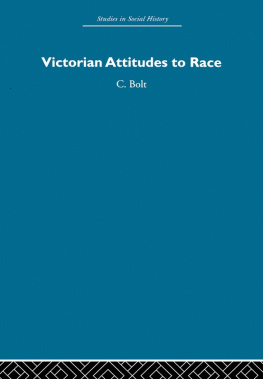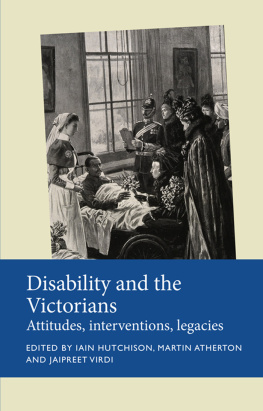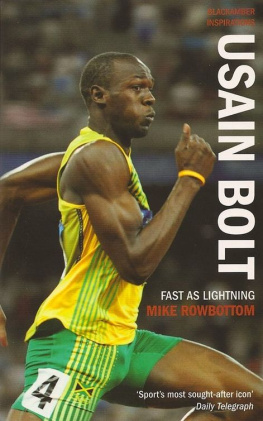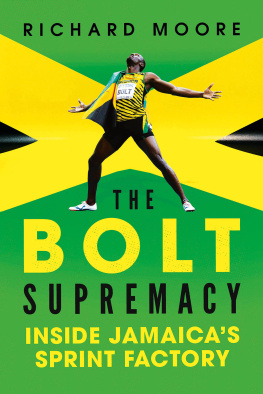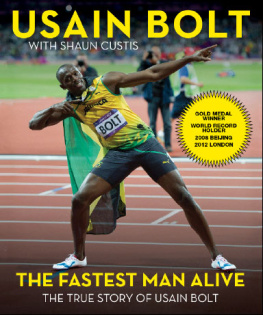STUDIES IN SOCIAL HISTORY
VICTORIAN ATTITUDES TO RACE
First published in 1971
This edition published in 2007 by
Routledge
2 Park Square, Milton Park, Abingdon, Oxon, OX14 4RN
Routledge is an imprint of Taylor & Francis Group, an informa business
Transferred to Digital Printing 2010
1971 Christine Bolt
All rights reserved. No part of this book may be reprinted or reproduced or utilized in any form or by any electronic, mechanical, or other means, now known or hereafter invented, including photocopying and recording, or in any information storage or retrieval system, without permission in writing from the publishers.
The publishers have made every effort to contact authors and copyright holders of the works reprinted in the Studies in Social History series. This has not been possible in every case, however, and we would welcome correspondence from those individuals or organisations we have been unable to trace.
These reprints are taken from original copies of each book. In many cases the condition of these originals is not perfect. The publisher has gone to great lengths to ensure the quality of these reprints, but wishes to point out that certain characteristics of the original copies will, of necessity, be apparent in reprints thereof.
British Library Cataloguing in Publication Data
A CIP catalogue record for this book
is available from the British Library
Victorian Attitudes to Race
ISBN 10: 0-415-41310-9 (volume)
ISBN 10: 0-415-40266-2 (set)
ISBN13: 978-0-415-41310-7 (volume)
ISBN 13: 978-0-415-40266-8 (set)
Routledge Library Editions: Studies in Social History
Victorian Attitudes to Race
Christine Bolt
LONDON: Routledge & Kegan Paul
TORONTO: University of Toronto Press
First published 1971 in Great Britain by
Routledge & Kegan Paul Limited
and in Canada and the United States of America by
University of Toronto Press
Printed in Great Britain by
Cox and Wyman Ltd, Fakenham, Norfolk
Copyright Christine Bolt 1971
No part of this book may be reproduced
in any form without permission from the
publisher, except for the quotation of brief
passages in criticism
RKP ISBN 0 7100 6926 X
UTP ISBN 0 8020 1751 7
for Ian
Contents
Preface
D URING the middle years of the nineteenth century, race, like civilization, became one of the great catchwords of those Victorians who concerned themselves with events outside Britain. Superiority of the white race justified increasing intervention in Africa, continuing British rule in India, the savage repression of the Jamaica revolt of 1865, and acid comments on the racial experiments of the United States during Reconstruction. The innate inferiority of coloured and especially Negro races made such intervention and such comments not only practicable but excusable, in the interests of religion, progress and truth. But, as the President of the London Anthropological Society, James Hunt, complained in 1863, hardly two persons use such an important word as race in the same sense.1
The word race was first used in English literature as denoting a class of people, even a family. In eighteenth-century usage it was possible to speak of a race of animals or birds. By the nineteenth century this imprecision was fully recognized, and it was suggested that the term was purely subjective, and illuminated the opinion of the investigator rather than the object of his investigation.2
Such confusion was to be deplored, not merely from a scientific point of view, but because, according to Hunt, the fate of nations depended on a true appreciation of anthropology. Were not the causes which have overthrown the greatest of nations, he asked, to be resolved by the laws regulating the intermixture of the races of man? Did not the success of our colonisation depend on the deductions of our science? And was not the composition of harmonious nations entirely a question of race?3
The question of race cropped up endlessly in Victorian speeches and writings, and all too often prejudice perverted reason, while racist and philanthropist alike described what they hoped rather than knew to be true. Many useful studies have been produced on racial attitudes in different parts of the Empire, at different times, during the nineteenth century.4 Little has so far been done to draw this research together: to provide a comparative survey of the most characteristic Victorian opinions about coloured races.
In attempting such a work, I have taken 1850 as my approximate point of departure. The decade which followed was one of tension: improvements in medicine facilitated Britains growing if reluctant involvement in the Gold Coast, Zanzibar and Central Africa; the turbulence between blacks, Boers and British in South Africa could not safely be ignored; in the United States racial animosity aggravated political and economic grievances and threatened to divide the Union; while in 1857 news of the Indian Mutiny shattered the Anglo-Indian community, the Victorian reading public, and the whole world. During the 1850s dwindling membership, shrinking funds and public indifference bore witness to the decline of the British antislavery movement.
Britains industrial, financial and maritime pre-eminence at this time, associated with the triumph of free trade, rendered colonies temporarily unfashionable (as opposed to the interests which were cultivated in, for instance, North Africa). Fear, the product of unhappy experiences in India, the Cape Colony and New Zealand, undermined the Romantic view of the Noble Savage and the complacent concept of the peaceful child of Nature. A leader writer in the Daily Telegraph in 1866 captured this new mood exactly with his confession that Of all human tasks, the most hopelessly difficult is that of governing wisely, humanely, and justly a community in which unequal and antagonistic races are largely intermingled.5 But ironically, during a period of apparent recoil from overseas commitment, the aggressive assertion of white superiority which is such a pronounced feature of the 1850s and 1860s prepared the way for the next great phase of British expansion towards the end of the century.
This study is concerned primarily with opinion, not with establishing new historical facts or illuminating government diplomacy, and is based upon materials obtainable in Britain. The main areas here under review are Jamaica, Africa, India and the United States. To reduce the volume of material a little, in the chapter on Jamaica attention has been focused on the revolt of 1865, which crystallized Victorian thinking about the West Indian Negro. Inevitably many of those whose observations I have used had no first-hand experience of the races they described. Some were the armchair philanthropists who, as the eminent Victorian explorer Sir Richard Burton cynically put it, so loved Africa that they avoid it as a pestilence. In Burtons opinion, ignorance, not knowledge, sentimentality not sense, sway the public mind on racial questions.6 But the testimony of the ignorant may be the most typical, may tell us a great deal about Victorian, if not primitive, society. British attitudes and responses to colonial and American developments, in fact, have a logic of their own, and, however inaccurate and biased it may have been, public opinion frequently influenced public policy or resulted in some sort of practical activity in the areas concerned.




